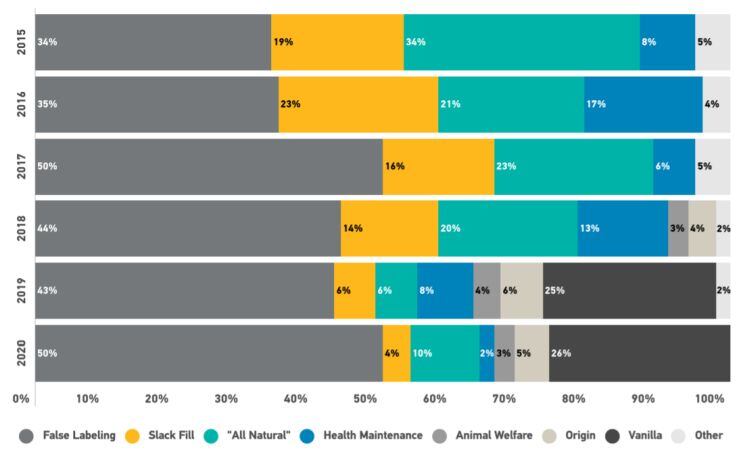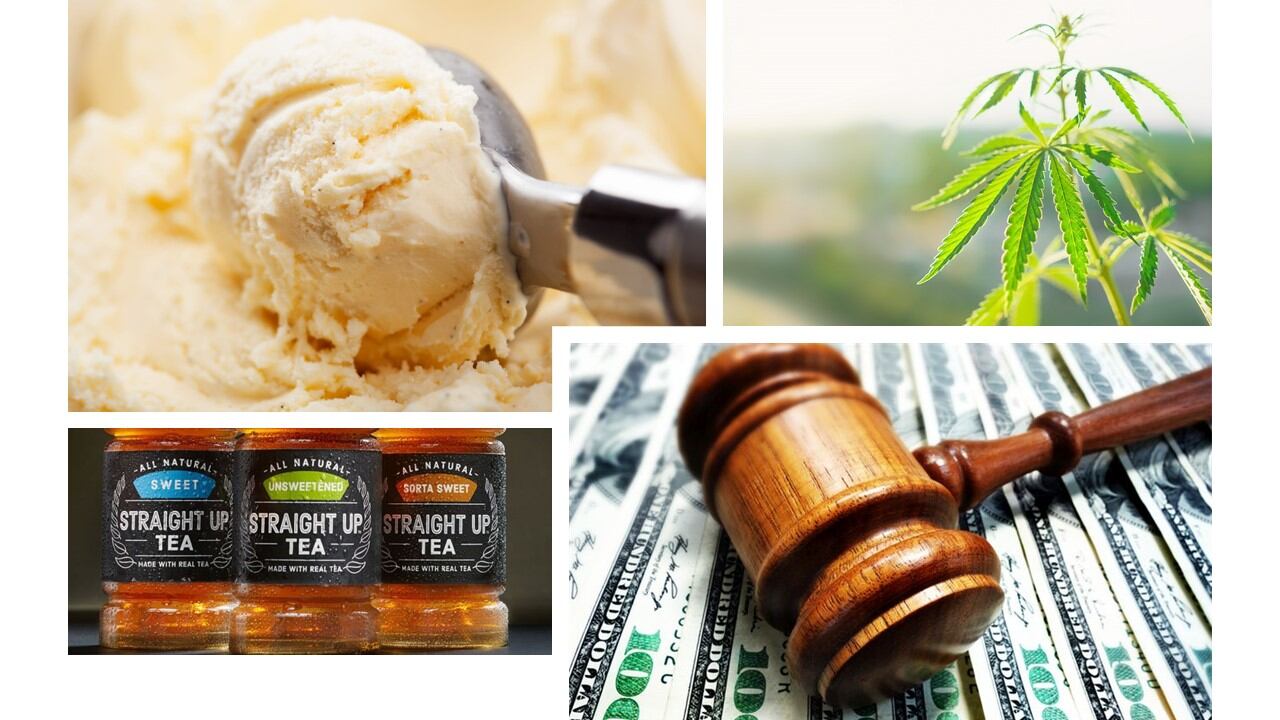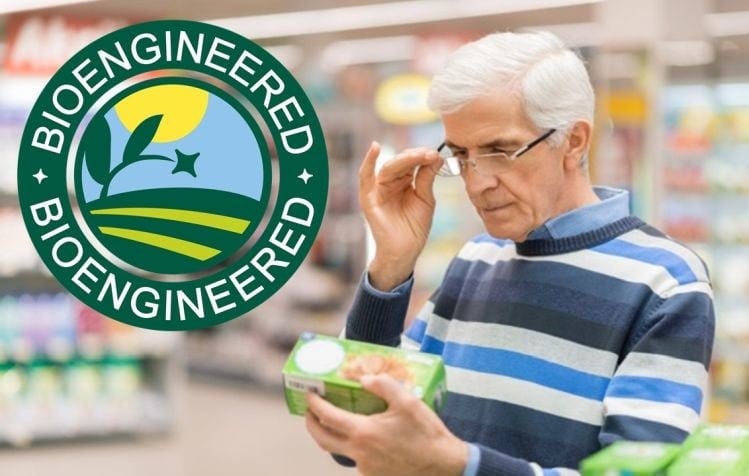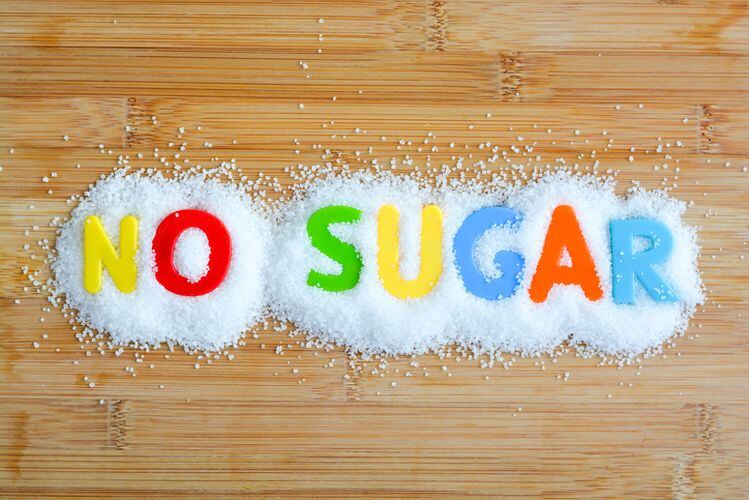“In a tumultuous 2020, one thing stayed the same: Plaintiffs’ class action lawyers continued to file plenty of lawsuits against manufacturers of consumer packaged goods (CPGs),” wrote the firm in an analysis of 2020 filings (Food and consumer packaged goods litigation 2020: Year in Review).
Vanilla lawsuits: Nearing their endpoint?
Much of the increase in filing volume “came from a number of cases challenging products flavored with vanilla—presenting an idiosyncratic theory adopted by one plaintiffs’ lawyer [Spencer Sheehan] whose ‘vanilla’ cases [alleging that brands’ representations regarding vanilla were false or misleading] were consistently tossed out by federal courts in 2020,” noted the report.
The district court’s analysis in Pichardo v. Only What You Need, Inc reflects the “commonsense analysis” courts now apply to these cases, argued Perkins Coie, highlighting judges’ apparent “impatience” with this particular strain of litigation.
“When consumers read vanilla on a product label, they understand it to mean the product has a certain taste. It is difficult to comprehend what is misleading when the Defendant’s ‘Smooth Vanilla’ tastes like vanilla.”
Slack fill lawsuits.. losing steam?
As for 'non-functional ‘slack fill’ class actions, whereby plaintiffs have argued that empty space in food packages doesn’t serve any useful purpose ('this cereal box is mostly air...'), judges have been equally dismissive, said the report.
“In Buso v. ACH Food Cos., Inc, the court rejected the theory that defendant’s nontransparent packaging was inherently deceptive and held that a reasonable consumer would not be deceived by packaging that discloses the product’s net weight, number of servings, and the rough estimate of cornbread that could be made from the box.”
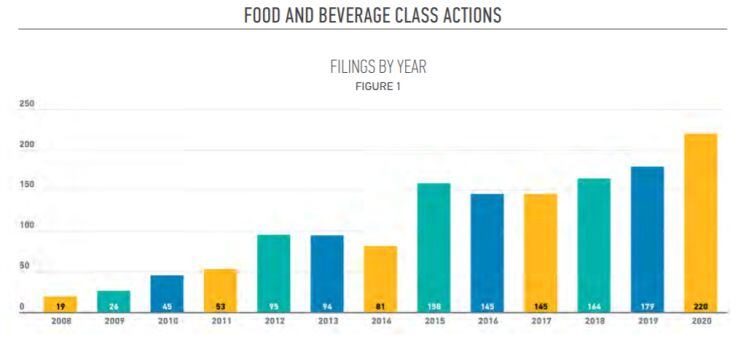
Greenwashing lawsuits: Sustainability and animal welfare claims
So what new things might plaintiff's attorneys look at when they scan supermarket shelves in 2021 (beyond heavy metals in baby food, which prompted a tidal wave of lawsuits following the publication of a Congressional Subcommittee report in February)?
“One area that we monitored closely in 2020, and will continue to track in 2021, is litigation related to sustainability; lawsuits that challenge a company’s animal welfare or environmental practices,” said Perkins Coie, which logged seven such cases last year covering terms such as ‘humane’ and ‘free range.’
“Plaintiffs’ counsel made modest inroads into this type of litigation, but if the past is any guide, initial efforts like those we saw in 2020 tend to be followed by a more substantial wave of cases.”
Outside the food and beverage arena, plaintiffs’ attorneys have also shown interest in lawsuits that allege environmental claims fail to comply with environmental marketing best practices outlined in the FTC Green Guides, added Perkins Coie.
CBD: A waiting game
Ingestible CBD remains fertile territory for civil litigation given the regulatory minefield surrounding the cannabinoid, which the FDA says is not a legal dietary ingredient as it was first investigated as a drug yet at the same time is exploring “potential pathways for various types of CBD products to be lawfully marketed,” prompting some judges handling CBD lawsuits to stay these cases on primary jurisdiction grounds.
As the cannabis industry continues to grow, so too do the litigation risks facing the industry, predicted Perkins Coie: “Our survey of federal cannabis class actions filed during 2019 and 2020 revealed approximately 100 new case filings—55 in 2019, and 46 in 2020.
“For cannabis product manufacturers, the most significant cases are the approximately 30% of claims alleging: (i) the labeled amount of THC or CBD was inaccurate or (ii) the CBD product was “illegal to sell” pursuant to the FDA’s recent public announcements.”
Place of origin
Place of origin claims remained constant in 2020, with 10 cases filed, the same number as in 2019, said the report. “The majority alleged that the words and imagery on the product labels misled consumers into believing that the product was made in a certain location or contained ingredients sourced from a particular location.
“In 2020, courts continued to find that geographic brand names and associated imagery alone (particularly when there is a place of origin disclaimer) will not likely mislead a reasonable consumer, whereas geographic brand names coupled with references to geo-specific ingredients, imagery, and express origin statements could mislead a reasonable consumer.”
Sorta sweet? Lightly sweetened litigation
As for the recent wave of lawsuits over unregulated terms such as ‘sorta sweet’ and ‘lightly sweetened,’ it will be interesting to see how the courts handle such cases, said Perkins Coie.
“In the past, courts have considered similar language to be non-actionable puffery. We’ll be monitoring this litigation trend in 2021 to see if this new spate of cases are dispensed with in the same way.”
All-natural: Bioengineered confusion?
While ‘all natural’ cases are not as common as they were a few years ago, natural claims still present opportunities for plaintiff’s attorneys given that the FDA has not defined this term (except for natural flavors), said Perkins Coie.
“While the number of filings has dwindled over the years, the persistence of ‘natural’ as a category of false labeling cases suggests the claim continues to remain a target of the plaintiffs’ bar… Examples of ingredients challenged in these cases include gelatin, citric acid, ascorbic acid, dextrose, potassium sorbate, xanthan gum, and soy lecithin.”
Despite setbacks in this area, the plaintiffs’ bar also persisted in the filing of lawsuits challenging products labeled ‘natural’ that contain residual amounts of trace pesticides, noted the report.
“Decisions in 2020 suggest that challenges to bioengineered or other allegedly unnatural ingredients remain viable.”
*This excludes Prop 65 notices, notes Perkins Coie. "In 2020, there was a shocking threefold increase in the number of such notices served by plaintiffs on food, beverage, and supplement manufacturers—jumping from 534 notices in 2019 to a record-breaking 1,546 notices in 2020.
"The spike in the number of pre-litigation notices has been driven primarily by a handful of new and aggressive “bounty hunter” plaintiffs. Notably, however, the number of Proposition 65 settlements slumped in 2020, perhaps indicating that the new plaintiffs took a shotgun approach when issuing pre-litigation notices and may not have had the resources to pursue litigation.
"As before, the pre-litigation notices primarily target food products containing acrylamide, lead, and cadmium."
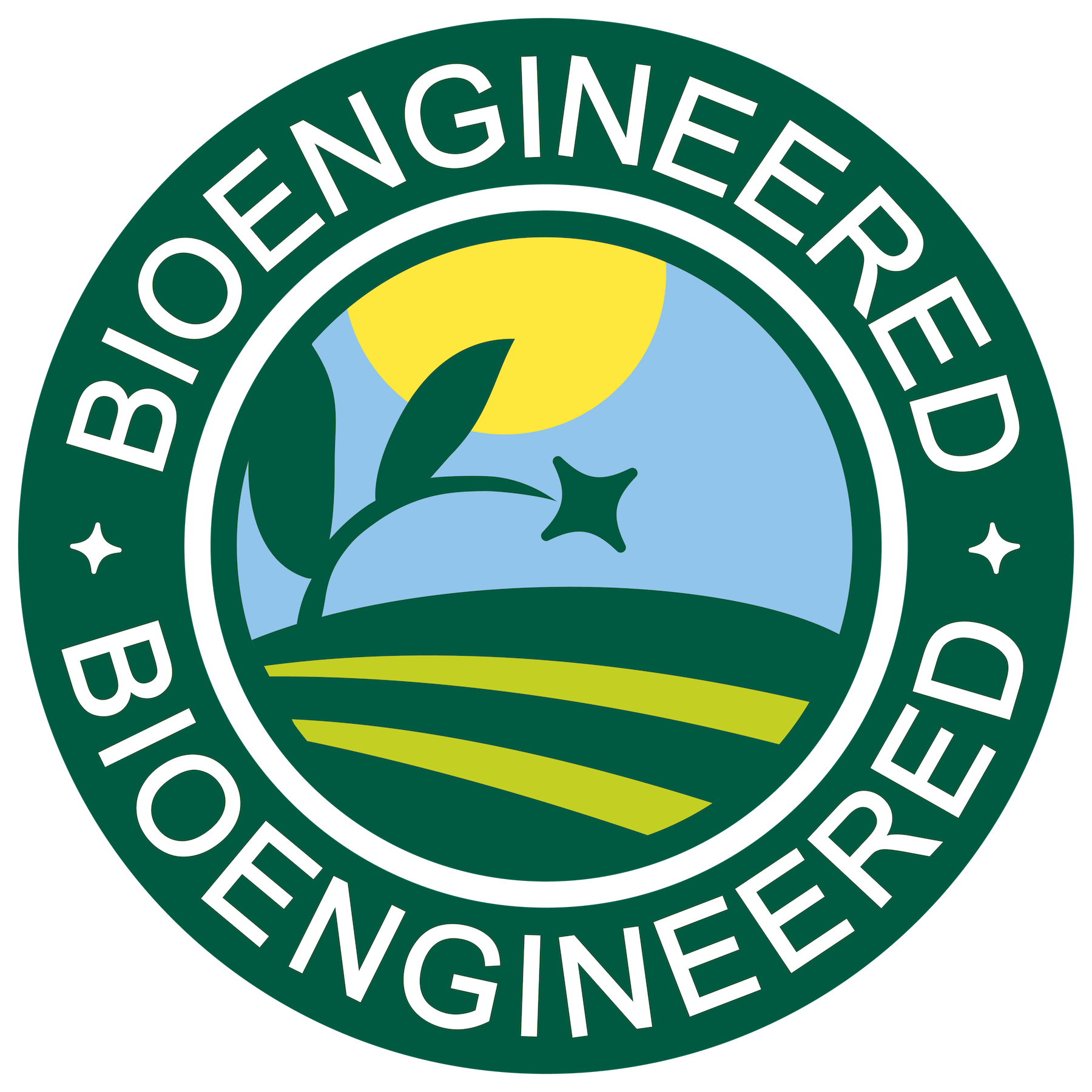
‘The biggest challenge is communication through the supply chain…’ Many stakeholders not yet up to speed on National Bioengineered Food Disclosure Standard, say experts
Compliance with the National Bioengineered Food Disclosure Standard (NBFDS) – which requires firms with annual sales of >$2.5m to label ‘bioengineered’ foods, beverages, and supplements – is mandatory from January 1, 2022. So is the industry up to speed? It’s a pretty mixed bag, according to labeling experts... Read more HERE.
